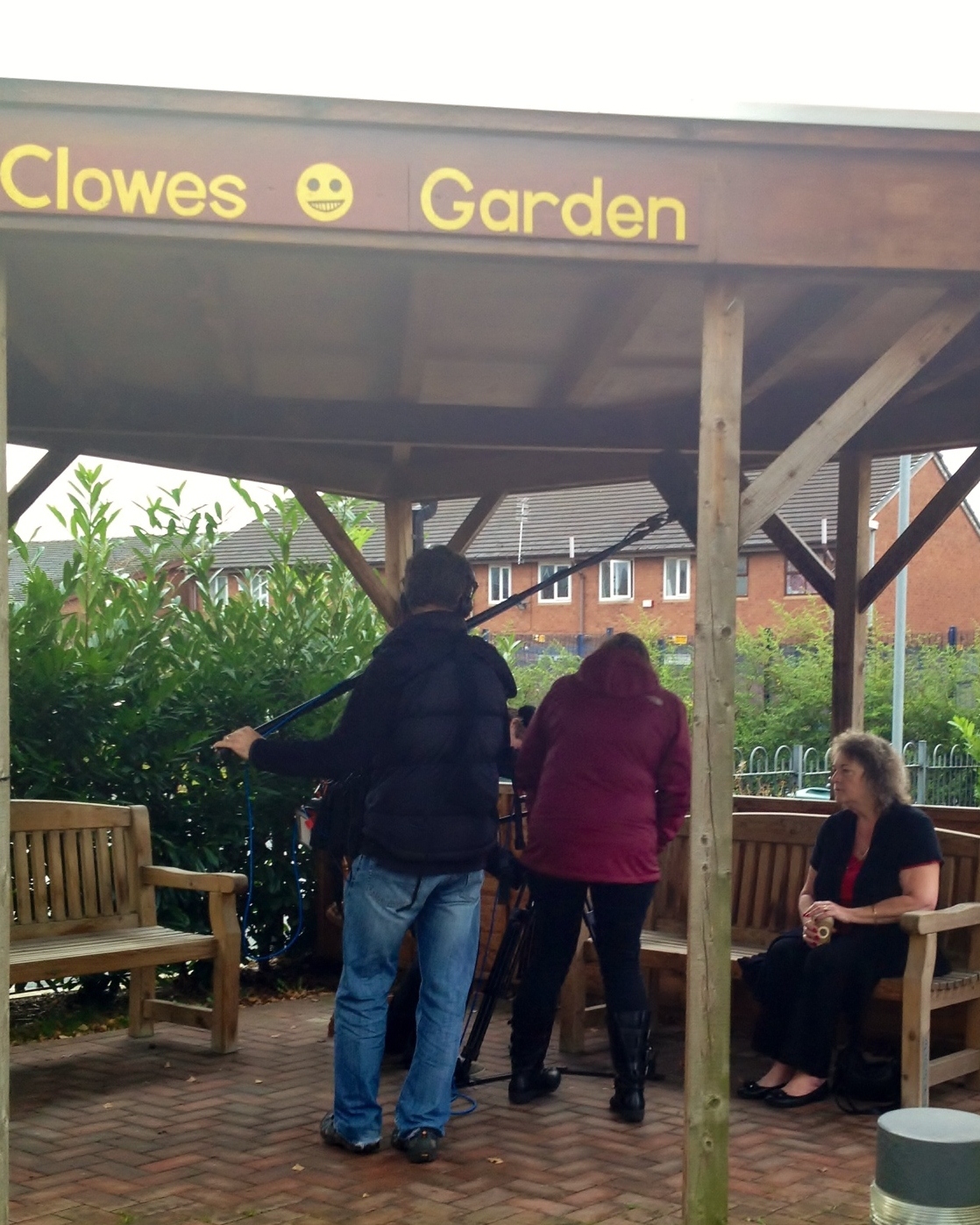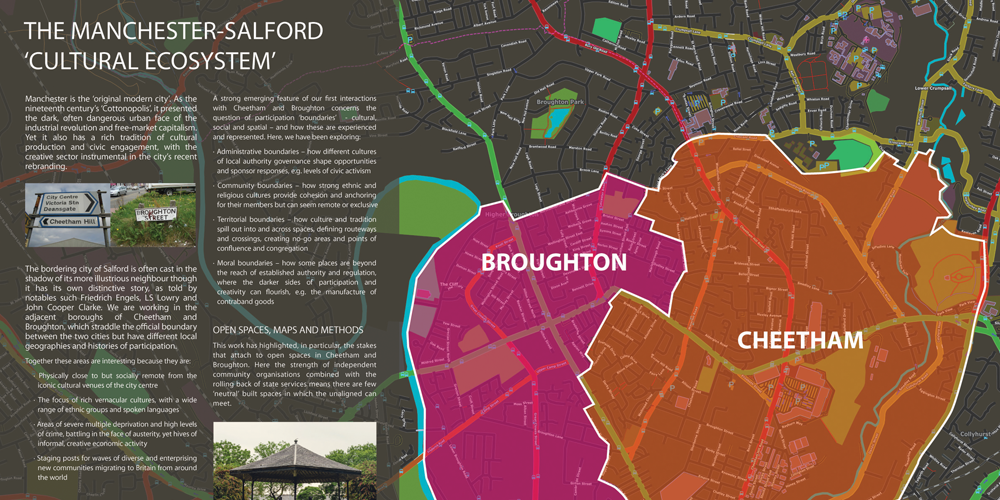The following update was circulated to local stakeholders in Broughton and Cheetham with details of activities since we began fieldwork research in late Spring this year. We would particularly like to thank Continue reading
Category Archives: Uncategorized
What’s in a map? Reflections on the 2013 Connected Communities Summit
Last week saw a gathering of the AHRC Connected Communities (CC) clans on the outskirts of Edinburgh for their 2013 Summit. These annual meetings provide opportunities for projects funded under the CC programme (around 250 to date) to network and ‘show and tell’ their work. The three-day event included a day on early career research development, a programme networking day and, finally, a ‘Showcase’ aimed at a non-academic audience, which profiled a sample of the CC projects through exhibitions, posters, workshops and performances. The Showcase model was first trialed by the AHRC at an event in London in July, where it was a great success. Once again, a striking feature of this final day was the way in in which it illustrated just how creative academics can be.
IMAGE: section of our poster for the connected communities summit. Full poster below.
AHRC filming in Salford
By Andy Miles  On 8th November, we were up in Higher Broughton, Salford, the first eco-system case study, on a film shoot with the Arts and Humanities Research Council. This film will be used to profile the Connected Communities research project on the AHRC website and also at a forthcoming all-party Parliamentary event. The shooting involved a number of local people representing different communities of interest in the area, including the local authority, youth service, community gardens and allotments and a sports club. Andy Miles provided the introduction to our research. Many thanks to all those involved in coordination and filming, in particular Shirley Lundstram, Salford City Council, and the staff at Fit City Broughton Pool and Broughton Hub library.
On 8th November, we were up in Higher Broughton, Salford, the first eco-system case study, on a film shoot with the Arts and Humanities Research Council. This film will be used to profile the Connected Communities research project on the AHRC website and also at a forthcoming all-party Parliamentary event. The shooting involved a number of local people representing different communities of interest in the area, including the local authority, youth service, community gardens and allotments and a sports club. Andy Miles provided the introduction to our research. Many thanks to all those involved in coordination and filming, in particular Shirley Lundstram, Salford City Council, and the staff at Fit City Broughton Pool and Broughton Hub library.
About Everyday Participation
Understanding Everyday Participation – Articulating Cultural Value is a five year research project funded by the Arts Humanities Research Council, part of their Connected Communities: Cultures and Creative Economies programme.
The project is led by Dr. Andrew Miles, ESRC Centre for Research on Socio-Cultural Change, University of Manchester and involves Continue reading
Culture – Participation – Policy
Welcome to the Understanding Everyday Participation blog – Culture, Participation, Policy. We aim to keep you posted through this resource with updates on the team’s activities across the various work packages of the research project and by disseminating relevant news and views from our partners and networks.


